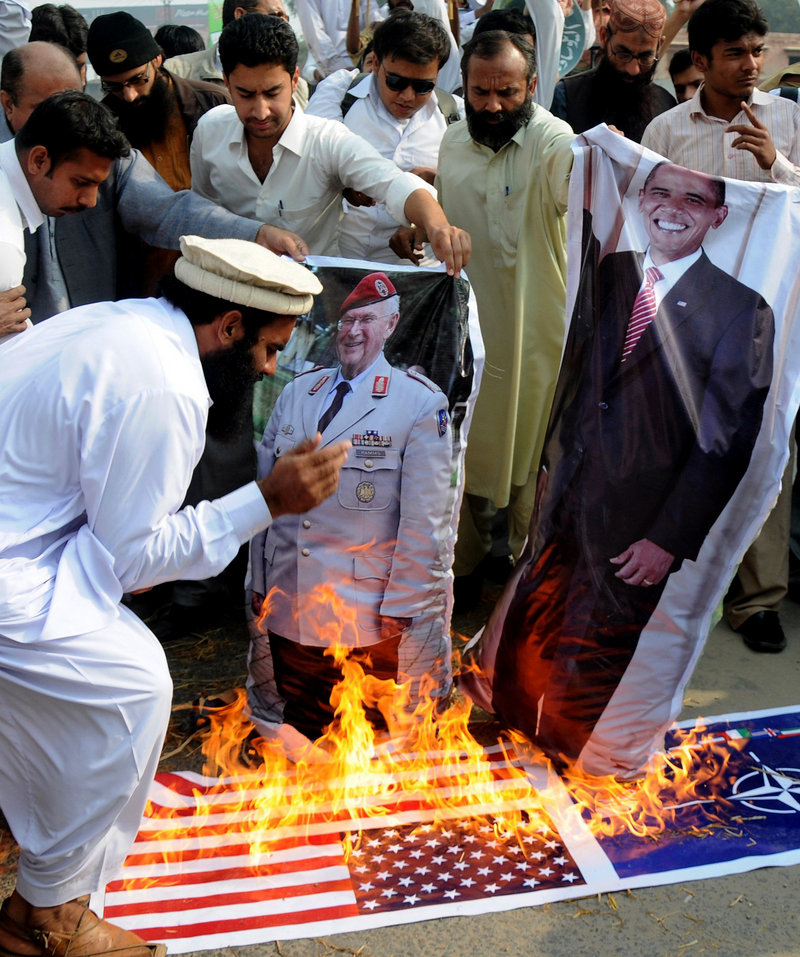RAWALPINDI, Pakistan — In what could be the biggest change in a decade in a relationship that has been a mainstay of U.S. military and counterterrorism policy since the 9/11 terror attacks, the United States and Pakistan are lowering expectations for what the two nations will do together and planning for a period of more limited contact.
The change described by both Pakistani and U.S. officials follows a series of diplomatic crises over the past year that strained an already difficult partnership based around the U.S. goal of stability in Afghanistan and Pakistan and a reduction in Islamic-inspired terrorism.
For Pakistan, cooperation on that agenda was rewarded with billions in financial aid. The change means less cooperation with Washington and a willingness to swear off some aid that often made Pakistan feel too dependent, and too pushed around.
For the United States, scaling down an expensive military and economic program that has not met expectations could come at the cost of less Pakistani help in ending the war in next-door Afghanistan.
Both U.S. and Pakistani officials said the November killing of 24 Pakistani soldiers in a NATO airstrike and Washington’s refusal to outright apologize for the deaths has been a game changer in a relationship characterized by mistrust and mutual acrimony.
In the United States, civilian and military officials have called the friendly fire incident a tragedy caused by mistakes on both sides, but insist that Pakistan fired first. Pakistan denies that, and has called the incident an unprovoked attack.
Pakistan’s loudly angry reaction has, if anything, hardened attitudes in Congress and elsewhere that Islamabad is untrustworthy or ungrateful.
Pakistan has already stopped billing the United States for its anti-terror war expenses under the 10-year-old Coalition Support Fund, set up by Washington after the 9/11 attacks to reimburse its many allies for their military expenses fighting terrorists worldwide and touted by the United States as a success story.
“From here on in we want a very formal, business-like relationship. The lines will be drawn. There will be no more of the free run of the past, no more interpretation of rules. We want it very formal with agreed upon limits,” military spokesman Gen. Athar Abbas said in an interview in the garrison town of Rawalpindi.
Pakistan will further reduce the number of U.S. military people in Pakistan, limit military exchanges with the United States and rekindle its relationship with neighbors, such as China, which has been a more reliable ally, according to Islamabad.
Pakistan also asked the United States not to send any high-level visitors to Pakistan for some time, the U.S. official said.
With the clock ticking until its combat withdrawal from Afghanistan by 2015, Washington’s battlefield strategy is to break the momentum of the Taliban in order to improve its negotiating position at the table. Pakistan is seen as crucial to the success of this effort.
Copy the Story Link
Send questions/comments to the editors.



Success. Please wait for the page to reload. If the page does not reload within 5 seconds, please refresh the page.
Enter your email and password to access comments.
Hi, to comment on stories you must . This profile is in addition to your subscription and website login.
Already have a commenting profile? .
Invalid username/password.
Please check your email to confirm and complete your registration.
Only subscribers are eligible to post comments. Please subscribe or login first for digital access. Here’s why.
Use the form below to reset your password. When you've submitted your account email, we will send an email with a reset code.